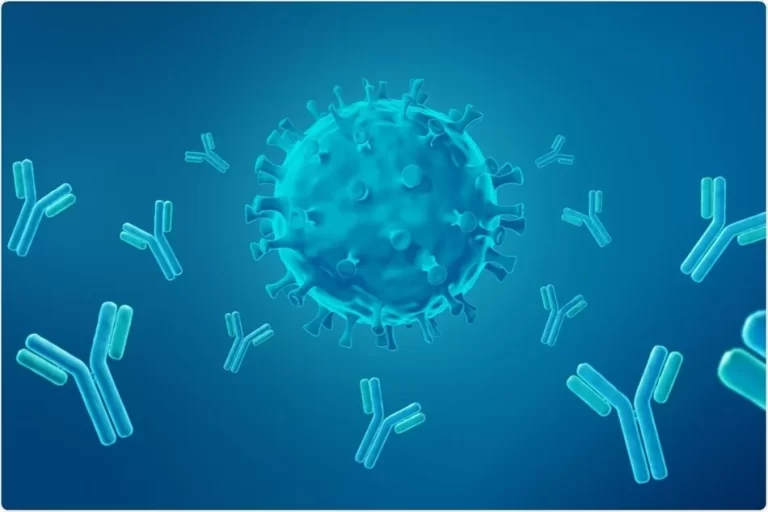Monoclonal antibodies, which are synthetic versions of antibodies that are produced in a lab, appear to have lost effectiveness against COVID-19 disease as new variants of the virus emerge. Previously touted as the top-of-the-line outpatient treatment by public health officials and many clinicians, monoclonal antibodies have fallen out of favor as outpatient treatment for patients with SARS-CoV-2 infections because they have lost effectiveness against emerging new strains of the virus.1
Designed to theoretically restore, mimic, inhibit or enhance immune system function, monoclonal antibodies have been approved by the U.S. Food and Drug Administration (FDA) under an Emergency Use Authorization (EUA) for treatment of COVID disease. Antibodies are proteins in the blood that help fight infection and the lab grown proteins (monoclonal antibodies) created to neutralize the SARS-CoV-2 virus specifically target only that virus.
Monoclonal antibodies are developed using the blood of humans, who have recovered from COVID, or blood from mice or hamsters that have immune systems genetically engineered to be more like the human immune system.2 The monoclonal antibodies stay in the blood and bind to the SARS CoV-2 virus, signaling the immune system to amount a response. If they bind to a specific part of the virus, such as the tip of the spike protein, the mononuclear antibody treatment theoretically could stop the viral infection from progressing.3
The Last Functional Monoclonal Antibodies to Treat COVID?
While monoclonal antibody treatment reportedly has been successful for many patients in the past, as a new group of SARS-CoV-2 virus subvariants circulate, the remaining effective mononuclear antibodies, including tixagevimb/cilgavimab (Evusheld) and bebtelovimab, appear to have been rendered ineffective against new emerging strains of SARS-CoV-2.4 According to Jacob Lemieux, MD, PhD at the Massachusetts Consortium on Pathogen Readiness and Massachusetts General Hospital in Boston, was granted an EUA in December 2021 and had, until very recently, been effective in preventing severe COVID symptoms and death in immunocompromised people.5
However, as of the first week in November 2022, Dr. Lemiux observed that Evusheld is no longer combating the active strains of SARS-CoV-2.6 He said:
These are our last functional monoclonal antibodies. So I think it’s fair to say that the virus has outrun the current generati0n of monoclonal antibodies. This race probably will continue—hopefully there’ll be some new products in the pipeline.7
Concurring with that sentiment, Carl Dieffenbach, PhD, director of the Division of AIDS at the U.S. National Institutes of Health (NIH) concluded, “Monoclonals had their day, like the Model T or the biplane. Now it’s time to move on.”8
The current SARS-CoV-2 Omicron subvariants, BA.4.6, BA.2.75.2, and BJ.1, have been shown to be resistant to most monoclonal antibody treatment. The Bq.1.1 subvariant, which is associated with about 24.2 percent of all current SARS-CoV-2 infections, is showing resistance to all monoclonal antibody treatment. Similarly, subvariant BQ1, which is responsible for 25 percent of all infections, is also showing resistance. There is evidence that about half of all current COVID cases are resistant to monoclonal antibodies.9
New Monoclonal Antibodies May Not Be Developed Due to Cost, Emerging SARS-CoV-2 Strains
While more monoclonal antibodies could be developed to go after emerging strains of COVID, the high cost of manufacturing them may halt production. The U.S. government no longer promises to purchase large quantities and companies, in turn, have stopped producing the lab grown antibodies.10
According to Joshua Tan, PhD, chief of the Antibody Biology unit at NIH:
Initially, the focus was, ‘let’s just find the most potent antibodies’. Now, there’s awareness that we need to find antibodies that are likely to work against not just the [current version of the] coronavirus, but whatever may come.11
The process of finding new, more effective monoclonal antibodies to treat COVID-19 requires researchers to search for ways to produce synthetic antibodies that target parts of the coronavirus that are less likely to mutate as new strains emerge. Researchers take immune cells from the blood of people, who have recovered from the virus, and test them with plastic pellets covered with spike proteins derived from older versions of SARS-CoV viruses (SARS CoV-1, SARS CoV-2) to see which cells respond. Immune cells that react to the previous versions of coronaviruses bind to the spike protein that has not changed despite the new strains of SARS-CoV-2 in circulation. The entire process takes approximately three to four months for each cycle of monoclonal antibody testing.12 In addition to the painstaking process of identifying quality monoclonal antibodies that successfully target new strains of the SARS-CoV-2 virus, researchers say they are concerned that the antibodies may not be potent enough.13
Immunocompromised People At Risk for Serious COVID Complications Without Effective Monoclonal Antibody Treatment
COVID patients, who are suffering from cancer, as well as organ transplant recipients and the approximately seven million Americans who are immune compromised, could be at risk without the use of effective mononuclear antibody treatment to help prevent serious complications or death from SARS-CoV-2.14 15
Brian Koffman, MD, chief medical officer of the Chronic Lymphatic Leukemia Society, warned,
I’m worried that there is a significant group of people who are unaware of how things have changed. I’m very concerned about that. The tide is coming, and we need to let people know they’re no longer as protected as they used to be.16
U.S. Government Takes Notice But No Action
On October 3, 2022, the FDA first warned the public about the waning efficacy of the monoclonal antibodies against emerging strains of SARS-CoV-2. The U.S. Centers for Disease Control and Prevention (CDC) updated their webpage and the agency’s director, Rochelle Walensky, MD conceded that new SARS-CoV-2 variants “do evade our monoclonal antibodies.”17 On Oct. 25, 2022, the White House’s COVID-19 response coordinator, Ashish Jha, MD, reiterated that monoclonal antibodies may not work on some of the emerging strains of SARS-CoV-2.18
Critics argue that the government’s top health agencies have not done enough to get the word out that the monoclonal antibodies are not as effective as they once were and that immunocompromised people are more vulnerable to the risk of serious disease or death from SARS-CoV-2 infections without the availability of effective monoclonal antibody treatment. Janet Handal, president and cofounder of Transplant Recipients and Immunocompromised Patient Advocacy Group expressed concern that CDC officials need to do more to warn the immunocompromised about their increased risk from emerging strains of SARS-CoV-2. She said:
The CDC needs to explain in layman’s terms what has changed and what that means for them, and that I don’t see.19
If you would like to receive an e-mail notice of the most recent articles published in The Vaccine Reaction each week, click here.
Click here to view References:1 Huang P. How monoclonal antibodies lost the fight with new COVID variants. NPR Nov. 20. 2022.
2 Eastman Q. Monoclonal antibodies for COVID-19: Emory experts explain experimental treatment. Emory University Oct. 13, 2020.
3 Huang P. How monoclonal antibodies lost the fight with new COVID variants. NPR Nov. 20. 2022.
4 Hein I. Monoclonal Antibodies May No Longer Be a Match for Emerging COVID Strains. MedPages Today Nov. 18, 2022.
5 Ibid.
6 Many patients with weak immune systems don’t realize COVID-19 meds aren’t as effective anymore. MSN Nov. 15, 2022.
7 Hein I. Monoclonal Antibodies May No Longer Be a Match for Emerging COVID Strains. MedPages Today Nov. 18, 2022.
8 Huang P. How monoclonal antibodies lost the fight with new COVID variants. NPR Nov. 20. 2022.
9 Lee BY. Covid Variant BQ.1.1 Resistant To All Monoclonal Antibody Treatments. Forbes Nov. 21, 2022.
10 Ibid.
11 Ibid.
12 Ibid.
13 Ibid.
14 Hein I. Monoclonal Antibodies May No Longer Be a Match for Emerging COVID Strains. MedPages Today Nov. 18, 2022.
15 Many patients with weak immune systems don’t realize COVID-19 meds aren’t as effective anymore. MSN Nov. 15, 2022.
16 Ibid.
17 Ibid.
18 Ibid.













4 Responses
‘While more monoclonal antibodies could be developed to go after emerging strains of COVID, the high cost of manufacturing them may halt production.’
They don’t seem to have any such financial limitations when it comes to producing more vaccines…
Still buying into the propaganda? The chair is against the wall.
COVID is mutations are bigger.
The new and next dominant strain, is not a descended , or nefew of the previous COVID strain, but a distance cousin.
Previous infection, vaccine, and antibiotics from previous COVID will no longer help .
To get monocle antibody to work you would need to test the sick strain, then find a recovered with matching strain.
How did we treat phnumona, and respetory infection before COVID-19?
The only “COVID” out there is the bioweapons they put in the shots!
The “symptoms” are due to the rollout of 5G all over the place and the fact that massive amounts of satellites have been launched to further perturb the electrical balance of the globe. Just read the excellent book on this by Robert Firstenberg titled The Invisible Rainbow.
It’ll clear up all this disinformation about “antibodies” and the whole shebang.
Have they done ‘gain of function’/weaponiztion of the variant developed at Boston University?
It should be labeled “BU##-##.
80% lethality (8/10 rats died).
Insanity.